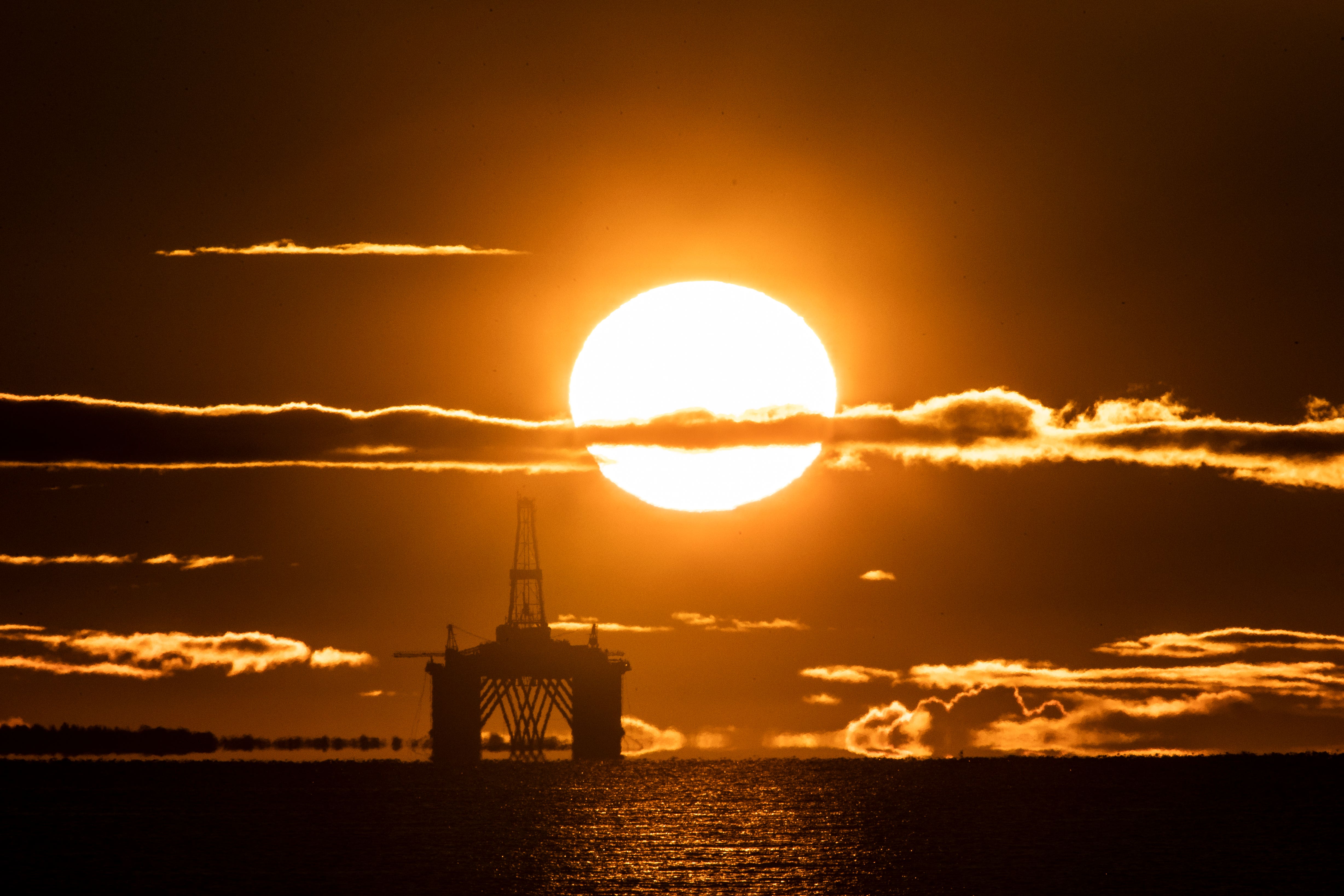Scotland’s finances more at risk from volatile oil and gas market – think tank
The Institute for Fiscal Studies said the UK as a whole is less exposed.

Your support helps us to tell the story
This election is still a dead heat, according to most polls. In a fight with such wafer-thin margins, we need reporters on the ground talking to the people Trump and Harris are courting. Your support allows us to keep sending journalists to the story.
The Independent is trusted by 27 million Americans from across the entire political spectrum every month. Unlike many other quality news outlets, we choose not to lock you out of our reporting and analysis with paywalls. But quality journalism must still be paid for.
Help us keep bring these critical stories to light. Your support makes all the difference.
Scotland’s public finances are at more risk of volatility as a result of oil and gas revenues than the rest of the UK, a leading think tank has said.
David Phillips, an associate director at the Institute for Fiscal Studies, looked at forecasts from the Office for Budget Responsibility (OBR) on oil and gas revenues, which are said to be worth around £5 billion to the Treasury in this financial year – dropping from £10 billion last year.
If realised, the increase in revenues would be worth 0.2% of UK national income compared to the £0.6 billion average in the late 2010s and the end of this financial year.
But in Scotland, a similar increase in the geographical share of oil and gas revenues which flow from Westminster would amount to 2% of national income, which Mr Phillips said shows “how the concentration of oil and gas production in Scottish waters means that Scotland’s overall tax revenues and in turn its public finances are much more exposed to this volatile and uncertain revenue source than the UK as a whole is”.
The think tank accepted that under the current constitutional arrangements in Scotland, the public finance position “does not matter much”, but the situation would come into sharp focus if Scotland achieves full fiscal autonomy from the UK or independence.
The country’s net fiscal balance, Mr Phillips added, is set to worsen this year and show little change over the coming five years despite “increases in onshore tax revenues and public spending restraint, these are offset by forecast declines in oil and gas revenues”.
The notional deficit in Scotland for the current financial year, the think tank said, is projected to be £2,450 higher per person in Scotland than the UK as a whole, based on the OBR’s oil and gas revenue forecasts in March.
If onshore revenues and spending follow roughly the same pattern as the OBR projects for the rest of the UK, the think tank said, oil and gas revenues in 2028-29 will need to hit £20 billion for Scotland’s deficit to match that of the rest of the UK.
Mr Phillips said: “Tax revenues from North Sea oil and gas production are volatile and uncertain, and often driven by events thousands of miles away – such as Russia’s invasion of Ukraine.
“The direct effects on UK-wide tax revenues are fairly muted, indeed, as a significant net energy importer, increases in revenues from oil and gas producers when prices rise are likely more than offset by reductions in other tax revenues as other sectors of the economy suffer.
“The situation for Scotland is different given most UK oil and gas production takes place in Scottish waters. Scotland’s underlying, notional public finance position, while less affected by swings in oil and gas revenues than in the period between the 1980s and 2000s, is much more dependent on these revenues than the UK as a whole is.
“Under current constitutional arrangements, this does not matter a great deal, but that would change under full fiscal autonomy or independence.”
Mike Tholen, UK director of sustainability and policy at industry body Offshore Energies UK, said: “Offshore Energies UK has repeatedly made clear to the Government and all the main political parties that fiscal and regulatory uncertainty are both major deterrents for investors.
“Uncertainty raises the risk premium of investing in the UK. Our industry has been hit by four changes in taxation in less than two years, which makes business planning impossible.
“To ensure the growth the UK urgently needs, to protect jobs and domestic energy supply, we need a long-term stable tax regime.”
Deputy First Minister Shona Robison said: “The record revenues from the North Sea in 2022-23 show the extent that the UK continues to benefit from Scotland’s natural wealth.
“However, this does not reflect the full benefits of the green economy, with hundreds of millions of pounds in revenue not yet captured.
“Under the current constitutional position, 41% of public expenditure and 64% of tax revenue is the responsibility of the UK Government.
“Indeed, a full £1 billion of our notional deficit in 2022-23 was the direct result of the UK Government’s mismanagement of the public finances.
“An independent Scotland would have the powers to make different choices, with different budgetary results, to best serve Scotland’s interests.”